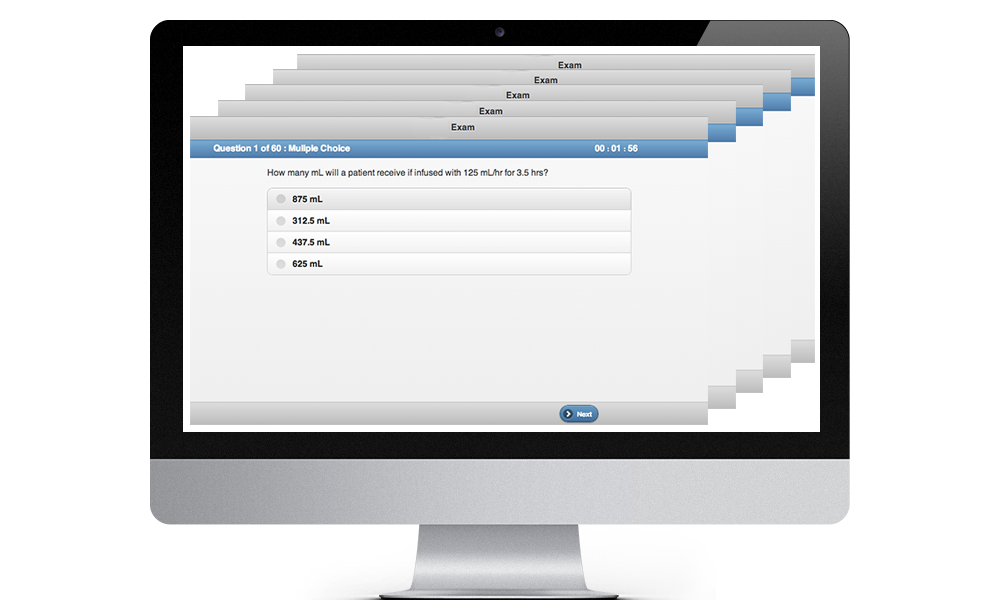ACLS Practice Test
Question 1 |
the ACLS survey. | |
the chain of survival. | |
a system of care. | |
the BLS survey. |
Question 2 |
never pause more than 30 seconds even if the AED is analyzing the rhythm. | |
never delay compressions for more than 10 seconds. | |
never pause more than 30 seconds unless the AED is analyzing the rhythm. | |
never delay compressions for more than 5 seconds. |
Question 3 |
should tell the patient to wait outside for the ambulance. | |
should tell the patient to drive themselves to a hospital. | |
should instruct the patient to take aspirin. | |
should tell the patient to lay down. |
Question 4 |
Hyperventilation. | |
Inducing therapeutic hypothermia. | |
Administration of magnesium sulfate. | |
Administration of calcium chloride. |
Question 5 |
1 hour. | |
90 minutes. | |
2 hours. | |
30 minutes. |
Question 6 |
900mg in 500cc. | |
400mg in 250cc. | |
125mg in 500cc. | |
1 mg in 250cc. |
Question 7 |
1200 mL. | |
800 ml. | |
600 mL. | |
1000 mL. |
Question 8 |
the rate of pacing needs to be turned up. | |
the patient will need about 10 minutes before showing clinical improvement. | |
there is an underlying cause causing the hypotension. | |
the rate of pacing needs to be turned down. |
Question 9 |
begin ventilating the patient. | |
gain IV or IO access. | |
begin chest compressions. | |
confirm it is asystole. |
Question 10 |
the aspiration of stomach contents. | |
the presence of a foreign body or object. | |
inflammation of the oropharynx. | |
the loss of tone in the throat muscles. |
|
List |
Advanced Cardiovascular Life Support
Practice for the Advanced Cardiac Life Support (ACLS) exam using our database of questions. Take full-length ACLS practice tests or focus quizzes, and track your progress to identify weak knowledge areas. Our subject matter experts have written the questions to mimic the content and test format you will see on the real ACLS exam. Click below to take an ACLS practice test and sample our proven method of ACLS prep.
The ACLS practice test content is available entirely online, allowing unlimited access to the testing center any time, day or night, for the length of your subscription. The ACLS testing platform randomly draws from our question database, so you can take unlimited, unique ACLS practice tests. Your tests will be graded instantly, so you can review areas that need improvement. Our tracking system will let you track your progress over time so you can see improvement and know when you are ready for the real ACLS test. We are so confident in our preparation method, we offer a 100% pass guarantee.






